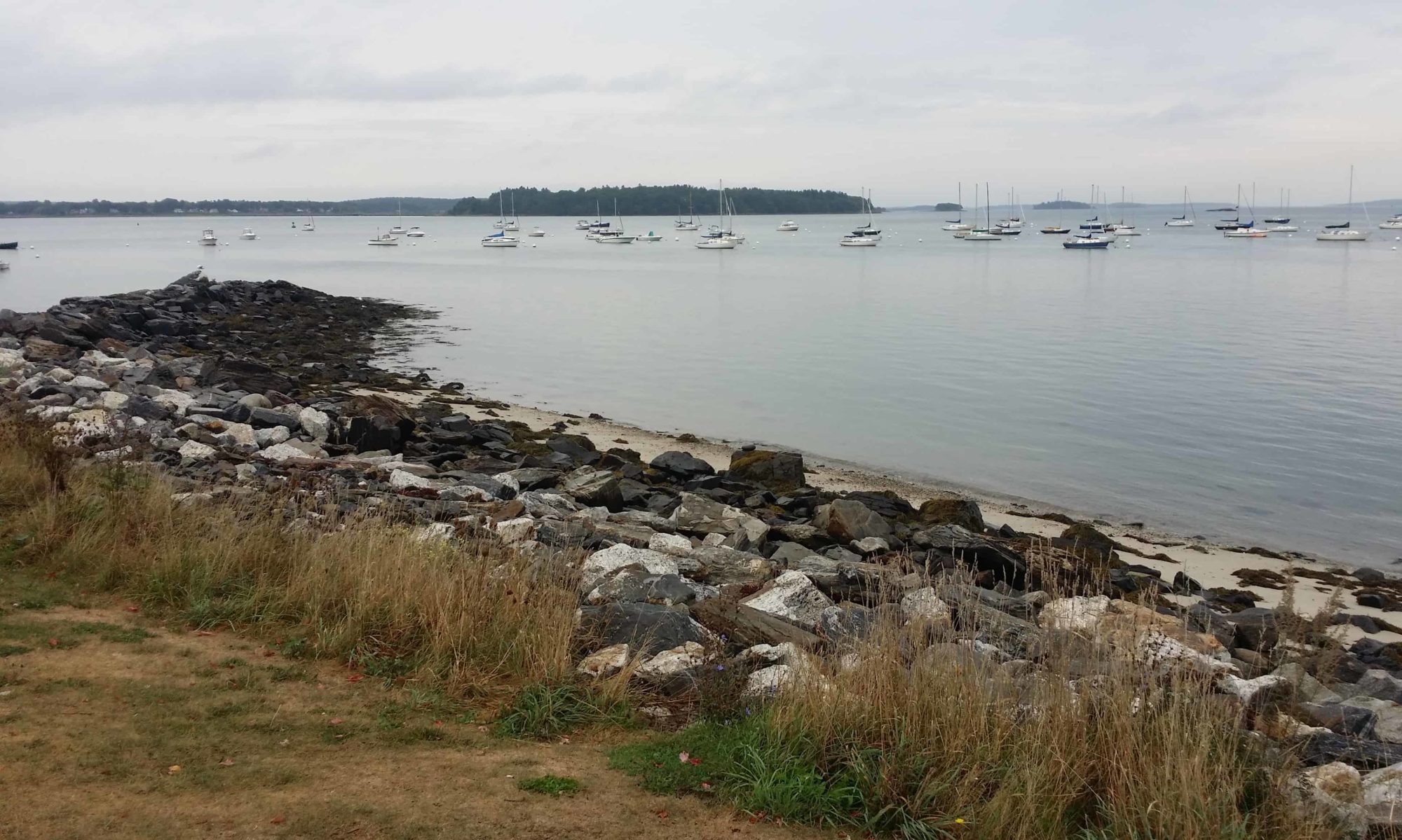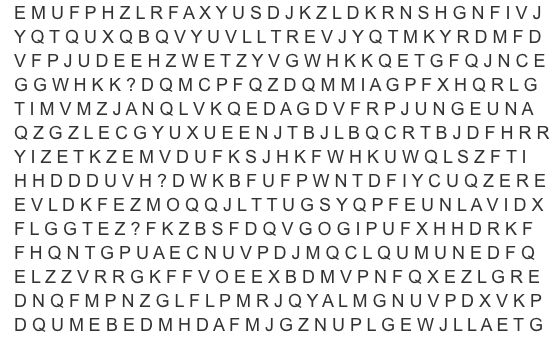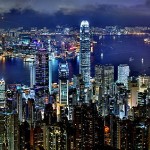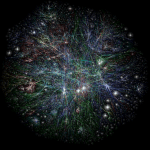Hong Kong sits off the southern coast of mainland China. Like Macau, it integrated with the PRC as a Special Administrative Zone in the late nineties preserving cultural and political autonomy, while yielding to the PRA for national defense, a model China hopes Taiwan and other islands controlled by the anti-Communist ROC will follow. Hong Kong is more a massive nature preserve with a complex of corporations seated in its bosom than a province — two hundred uninhabited sub-tropic islands, seventy-five percent undeveloped land, and a megapolis spanning the coastlines of Kowloon peninsula and Hong Kong Island. It has its own currency, a hands-off head of government called Chief Executive, the world’s seventh largest stock exchange and largest center of IPOs. Milton Friedman once called it the world’s greatest experiment in laissez-faire capitalism. This had been Posner’s city: the post he’d established twenty years ago as the CIA’s arm’s-reach monitoring head quarters, building a triangular surveillance relay between Penghu Island and the southern mainland, accumulating petabytes of unconfirmed SIGINT and un-vetted HUMINT, while bathing in the cascade of champagne and easy-cash available to high level CIA in exchange for industrial intelligence tips. The pilot’s announcement bell sounded: thirty minutes until landing. Tristan looked out his window, the sprawl of towers and antennae, LED lights streaming colors and messages in the overcast morning haze, like a pile of casino chips with iridescent inlays, a financial Casino with the PLA for muscle; and he thought of a photo Geoff had shown him: a map of the World Wide Web rendered spherical, reminiscent of a skein of nerve endings firing brightest at origins and synapses. Sinews of transferred information between servers, personal computers, mobile phones. As the plane arched around the city, before making it’s one hundred eighty degree turn to approach for landing, he could see, at this angle, the rivers of data, carrying persons, tiny quanta of information grouped in packets and shipped, each one meaningless in itself, stagnant, but combined ignite a chain bursting with new and subsequently transferred information. Hong Kong held a significance in that moment, in a way that was not immediately available to his intellect, but that he sensed like one senses a spiritual experience, like a silent beacon, waiting, stuck in restless, self referential patterns, needing him, Tristan, to bridge the gap, bring the information together. An enormous storm cloud was approaching from the East, arching northwest from the pacific, ominously began to engulf the city skyline. The turn complete, the city out of view, Tristan lost connection, like being startled out of a dream and sensing all details of it drifting away, he surrendered. However the dangling sense of significance, glimmer of purpose, remained, and he experienced a rush of energy and motivation as the fasten seatbelt sign chimed and the plane angled for descent, he was wide awake and eager to get to work. He imagined his minder proffering a couple days of sight seeing or a day on the beach to get acclimated, overcome jet-lag, and him saying, ‘No, let’s get on with this. We’ve got a lot of work to do.’
The airport employed the traditional human conveyor belts to ease the transition of stiff, possibly thrombotic, legs from gate to baggage. Tristan picked up his black duffel and dragged it to the seven layer immigration line. He used his citizen passport for entry as he was officially in Hong Kong on private business, his red State Department version safely sown, along with other alternative forms of identification, into his computer bag’s divider. From immigration he passed customs with nothing to claim. A giant ZTE logo materialized on the corridor wall, and faded, a blur of pixels, into an advertisement for the airport express train into Central Hong Kong. He preferred taken a bus upon first entering a country. Beyond the restricted area the roar of a tropical rain’s relentless assault drew Tristan’s gaze past the overhead catwalk connecting the next story’s terminals to a yawning glass ceiling one hundred meters high. This world, this tone, he thought, is far from empty, far from needing me to fill it. Yet, here he was. Across the meeting hall a Travelox currency exchange machine was embedded in a wall. Tristan used his debit card to withdraw the daily maximum two thousand Hong Kong Dollars. He didn’t know much Cantonese, but asked the vender at the Airport Express kiosk what bus he should take to Jordan Road in Kowloon. The man, who either didn’t know or didn’t understand, handed Tristan a folding map and spoke, seeming to scream, over Tristan’s shoulder to the next person in line. The A-22 bus would not leave until six, so he overpaid for a delightfully tart espresso and a play-dough tasting sesame seed muffin at a French stylized Starbuck’s clone named the improbable ‘agnès b. Cafe L.P.G.’ (a feeble attempt to avoid the actual Starbucks looming in the corner), waited the hour, listening to the rain, which sounded like a corn-syrup-tweeking toddler playing a timpani, and read his book.
Tristan had never been to a country where traffic drove on the left, not to London, or New Zealand or even Jamaica. He wondered why Canada had never adopted that antiquated mark of British rule. It probably would have angered the French. It seemed strange that the former British colonies, and even the U.K. itself, still retained the protocol, as if it was a distinguishing logic the crown was unwilling to surrender, or perhaps it was simply a matter of what to do with the extant cars and traffic signs. The only real advantage Tristan could imagine was that it facilitated easier car on car drive by shootings, for right-handers that is, modern day jousting. He was a bit unnerved, atop a double decker bus (another first), the rain oscillating between a deluge and sprinkle, but he did his best not to think about it. The airport was built on a small, once hilly, islet north of the mountainous Lantau Island. The drive to Kowloon was thirty minutes along Lantau’s winding northern coast. Most of the land out there was still undeveloped and lush, each curve revealing green cliffs and valleys emptying into beached coves, the occasional fishing village sprouting rectangular concrete residences oriented around two or three not-quite complete sky scrapers draped in a cocoon like black netting, a couple giant cranes standing watch.
The electric curtains allowed zero sunlight. The doorbell ringing through space gave Tristan some sense of this room he’d forgotten. It began, in his dreams, as a vague external warning, like a church bell or bomb raid siren, gradually he sloughed off layers of mythos and historical memory, determining that he was in fact on a couch in some hotel or apartment in Hong Kong, not his childhood bed, the final temporal realization, ding …. ding: shit. Somebody’s waiting. How long …. What time …. Where are my pants? He groped for a coffee table that should have, theoretically, held his phone. There was no coffee table. He rolled onto the floor, pawed a throw rug for a moment, rose up unsteadily, and with hands outstretched in the inky darkness found the door.
The hallway was colored cream and tastefully lit with single-loop filament Edison-bulbs, though even these proved blinding to Tristan’s mole eyes, intensifying the appeal of the woman with an expectant face: the heavy contrast accentuated the soft curve of her cheeks, and chin, the purposeful parting of her lips. Her blonde-brown both radiant and grounded. He was stuck, so she took the lead.
‘Hello Tristan, my name is Isabella. My friends call me Issie.” She skimmed him as she walked past, leaving a subtle wake of myrrh and musk, deftly touched the light button, and unloaded her computer bag and suit jacket on the couch. She was wearing a sleeveless azure blouse with a modest neckline, fitted black suit pants and black raised heels.
“Like the legendary lake monster? Japanese, right?” Tristan tried humor with a wide-eyed dependent look, but missed the timing, and may have been insulting if she was paying attention. He noticed his pants heaped beside the couch.
She squatted femininely to pick them up. “Don’t worry about it. We’re not friends.” She held out his pants impassively, the phone dropped from a pocket, and with what seemed to Tristan, who was still processing his failed joke, ninja swiftness, a slight dip at the knees, she grabbed the phone and placed it atop the pants. “Not yet, anyway,” she added, a glimmer in her eye.
She retrieved two lap tops, a clear bag of electronic gadgets and a bottle of red wine from her bag, setting them on the couch and bringing the wine to the kitchenette counter. Tristan thrust his legs through the wet fabric, which reminded him of that morning’s somnambulant uphill journey, which up to that point had been stored away somewhere, unavailable. Emerging from the subway station into the misty morning, he remembered having thought it looked like a version of midtown Manhattan, with newer buildings and narrower streets. The signage of Citi-Bank, Louis Vuitton and Armani giving way to off-white, predominantly glass, high rises. 7-11, Starbucks, shoe stores and lingerie. He had bought an umbrella and decided to keep his head down and get to the building, setting his bags and sitting quietly taking precedence over any curiosity he may once have entertained. The dynamic financial center, he’d imagine, high power business men spreading contagious energy, it wasn’t. Sunday had drained the streets of suits, replacing with housewives dragging children and giant brand-name bags under umbrellas held at eye height. It was very exhausting to think about, in his delirious cynicism, the western style conspicuous consumption related to an upper class theme park where families went to be happily distracted with new things and goofy visuals, while their fathers and husbands were dragged, dying from cardiac arrest, behind reinforced prefab walls. He felt rejuvenated now, and couldn’t tare his eyes away from her. She wasn’t young, but retained the vitality and radiance of youth. She moved with a blend of precision and mania, as if she were at all times a bit late. A beautiful woman, a future-chic apartment; it all seemed put on, like someone was juicing him up.
“So, you gave in to the call of a jet-lag induced nap. Did you have trouble sleeping on the flight?”
“No, I slept fine, I think. It’s hard to say. It’s just exhausting.”
“I know. You’ll get used to it. Most of your work, to begin with, can be done from home so your sleep schedule won’t matter much. But we do need to get started.” She was smiling more easily now, glancing at him at least, while she set up her laptop. He saw in the mirror above the dining hutch that his hair was matted thoroughly on one side and turned up on the other, like a teenage emo-do shaped with wax. He tried to flatten it down, but then excused himself to change his pants (and comb his hair).
“This place is great, by the way. I don’t dare even ask how much it costs.”
She explained that they wanted to keep him visible, playing the role of a man on long-term business. Hong Kong generally doesn’t check up on businessmen, especially coming from Canada, but it’s better to be safe than sorry, because ‘if they do know we might not know they know until it’s too late,’ she said. Also, the apartment was close to the office at the consulate. Tristan sat down, and tried to listen while Isabella explained that she was the Collection Management Officer assigned to this project, working directly under Gray Fox (code name for Hong Kong Chief of Station, James Rodnik). The little IBM notebook, encrypted with Truecrypt, held thousands of classified files in a cold storage (never connected to the internet) virtual drive. She clicked through various profiles of executives, office drones at various companies, Sybase, Motorola, Huawei, EYIF, Swisscom, Entel, EMC, L-1, along with active agents she and other officers were running in Hong Kong, Macau, Shenzhen and Shanghai.
“This should get you started.” She chirped, displaying the first bit of uncontrolled emotion since they’d met. “I’m sorry. I totally just zipped through all of that. Let’s eat something. I took the liberty of filling your fridge with some American comforts and some of my local favorites.” She closed the computer and glided to the kitchenette. “Do you like lasagna?” That got Tristan’s attention. He followed her to the counter and inspected the bottle of wine.
“Yes, it’s my favorite.”
She retrieved a small tinfoil encased casserole dish, nudging the door closed with her hip.
“I hope you don’t mind. It’s not standard. I like making it with eggplant instead of beef, especially in China. The beef isn’t the best.”
The wine was a Cairel, Barbera d’Alba from Caveia. Also his favorite, an obscure one too.
“You can’t get this here can you?”
“No. Unfortunately, not. My father get’s a case every other season. I always try to grab a few whenever I go home, for special occasions. It’s my favorite.” She studied his face, her velveteen brown eyes all but winking.
“Open it,” she said. “Let it breath for a couple hours.”



